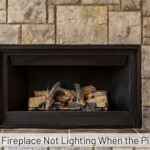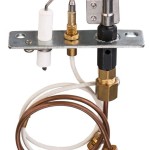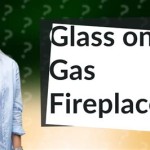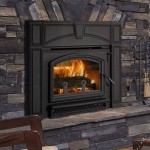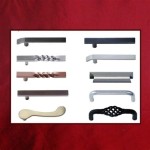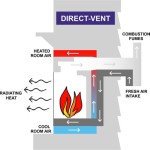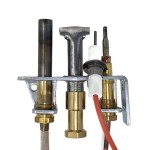Pilot Light Fireplace Summer: Understanding Seasonal Maintenance and Potential Issues
Pilot light fireplaces are a common feature in many homes, providing supplemental heat and ambiance during colder months. However, the functionality of these fireplaces, particularly the pilot light, can be affected by the summer season. While the fireplace isn't actively used during the summer, understanding the potential problems that can arise and implementing preventative maintenance are crucial for ensuring smooth operation when heating season returns.
The pilot light is a small, continuous flame that serves as the ignition source for the main burner of the fireplace. It is typically fueled by natural gas or propane. Because it burns continuously, it provides a readily available flame to ignite the main burner when the fireplace is turned on. This constant operation means the pilot light is susceptible to various issues, some of which can be exacerbated during the summer months.
The Impact of Summer Humidity and Moisture
Summer is often characterized by increased humidity and moisture levels. This can negatively affect the various components of a pilot light fireplace. One significant issue is the potential for corrosion. Internal components, such as the gas valve, thermocouple, and pilot tubing, are often made of metal and are susceptible to rust and corrosion when exposed to high humidity over extended periods. This corrosion can lead to a variety of problems, including reduced gas flow, malfunctioning valves, and even gas leaks.
Furthermore, condensation can form within the fireplace system due to temperature fluctuations and humidity. This condensation can collect in gas lines, potentially blocking the flow of gas to the pilot light. It can also contribute to corrosion of internal components. Proper ventilation around the fireplace can help mitigate some of these moisture-related issues. Regular inspection can identify early signs of corrosion before they lead to significant problems.
Another aspect relating to summer humidity is its effect on dust and debris. Humid air tends to hold more particulate matter, which can settle within the fireplace and around the pilot light assembly. This accumulation can interfere with the proper functioning of the pilot light, potentially causing it to extinguish or burn erratically. Furthermore, accumulated dust can attract insects, which can create further problems, such as blocked gas orifices or damaged components.
The Role of Insect Infestation in Pilot Light Problems
Insects are more active during the warmer months, and they can find their way into the fireplace system, creating significant problems. Spiders, in particular, are known to build webs within the small orifices of the pilot light assembly and gas lines. These webs can obstruct the flow of gas, causing the pilot light to become weak or extinguish completely. Other insects, such as wasps or ants, may also nest within the fireplace, further contributing to blockages and component damage.
The small opening of the pilot light is an ideal location for spiders to spin webs, as it provides a sheltered and often undisturbed environment. Even a small web can significantly reduce the gas flow, leading to inconsistent flame ignition or pilot light failure. Regular inspection and cleaning of the pilot light assembly are essential to prevent insect infestations. Using a small brush or compressed air can help remove webs and debris from the orifices. Professional fireplace servicing often includes cleaning and inspection of these vulnerable areas.
Beyond physical blockages, insect nests can also introduce moisture and organic matter into the fireplace system. This can accelerate corrosion and promote the growth of mold or mildew, further compounding the problems caused by humidity. Addressing insect infestations promptly is crucial for maintaining the functionality and longevity of the pilot light fireplace.
Gas Line Issues and Summer Inactivity
During the summer months, when the fireplace is not in use, the gas lines that supply the pilot light can experience various issues. One common problem is the accumulation of air within the gas lines. This can occur due to small leaks or pressure fluctuations within the gas system. When the fireplace is turned on in the fall, the air trapped in the lines can prevent the pilot light from igniting properly or cause it to extinguish shortly after ignition. Purging the gas lines to remove the air is often necessary to restore proper operation.
Another potential issue is the drying out of seals and connections in the gas lines. Over time, the rubber or plastic seals used in gas fittings can become brittle and crack, especially when exposed to fluctuating temperatures and humidity. This can lead to gas leaks, which are a serious safety hazard. Regularly inspecting the gas lines for signs of leaks, such as the smell of gas or the hissing sound, is crucial. A professional gas technician should address any leaks immediately.
Furthermore, the prolonged inactivity of the gas valve can also contribute to problems. Valves can become stiff or stuck due to lack of use, making it difficult to regulate the gas flow. This can affect the pilot light's flame size and stability. Exercising the gas valve occasionally, even during the summer months, can help prevent it from seizing up. However, this should only be done by someone familiar with the operation of the fireplace and gas system.
Another factor related to gas lines during the summer is the potential for pressure changes in the gas supply. Utility companies may perform maintenance or repairs on the gas lines, which can temporarily affect the gas pressure delivered to homes. This can affect the pilot light, causing it to flicker or extinguish. Once the gas pressure stabilizes, the pilot light may need to be relit. Understanding the local gas utility's schedule for maintenance can help anticipate potential disruptions.
Moreover, the composition of the gas itself can vary. Natural gas, in particular, is a mixture of different hydrocarbons, and its composition can change depending on the source and processing methods. These variations can affect the burning characteristics of the pilot light, potentially causing it to produce more soot or burn less efficiently. While these variations are typically minor, they can contribute to long-term maintenance issues if not addressed.
Beyond these specific issues, general preventative maintenance during the summer months is essential for ensuring the reliable operation of the pilot light fireplace. This includes cleaning the fireplace, inspecting all components for signs of damage or corrosion, and ensuring proper ventilation around the unit. A professional fireplace inspection by a qualified technician is also recommended, as they can identify potential problems that may not be readily apparent to the homeowner. Addressing these issues proactively can help prevent costly repairs and ensure the safe and efficient operation of the pilot light fireplace when heating season arrives.
Proper storage of propane tanks if the fireplace uses propane is also critical during the summer. Tanks should be stored in a cool, well-ventilated area away from direct sunlight. Overheating can cause the propane to expand, potentially leading to leaks or other safety hazards. It is also important to check the tank for any signs of rust or damage and have it inspected by a qualified professional if necessary.
Finally, it's essential to keep the area around the fireplace clear of flammable materials, such as curtains, furniture, and paper. While the fireplace is not in use during the summer, these materials can still pose a fire hazard if they are accidentally ignited by another source. Maintaining a safe distance between the fireplace and combustible materials is always a good practice.

Does The Pilot Light Need To Be Turned Off In Summer We Love Fire

Should I Turn The Pilot Light Off During Summer

Preparing A Gas Fireplace For The Summer

Turn The Pilot Light Off During Summer Gas Fireplace Tips

Save Money And Turn Off Your Pilot Light For The Summer

Should You Turn Off The Pilot On Your Fireplace This Summer

Should I Turn Off The Pilot Light In Spring B C Comfort Fireplace Hvac Repair Installation

Should You Turn Off The Pilot On Your Fireplace This Summer

Should I Leave My Gas Fireplace S Pilot On Or Off During Summer

Should A Gas Fireplace Pilot Light Be Turned Off In The Summer
Related Posts

